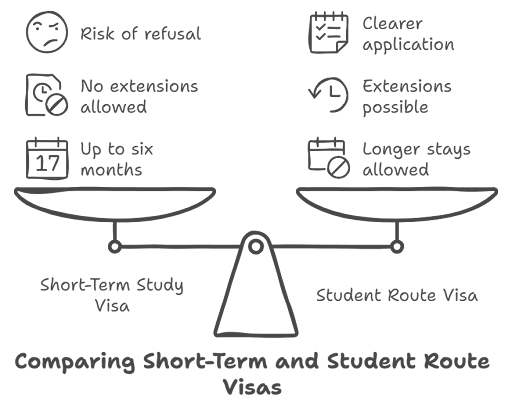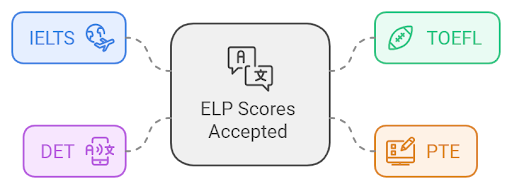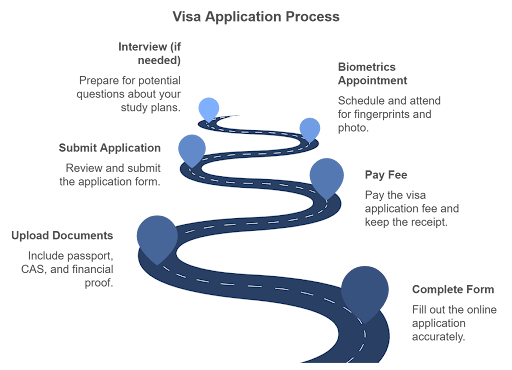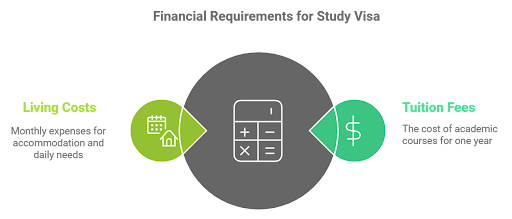Jasmine Grover Content Strategy Manager
Content Strategy Manager
The United Kingdom is a highly sought-after destination for Indian students pursuing higher education abroad. Securing a UK student visa is an important step for international students aiming to study in the UK. However, visa rejection rates have been rising especially among Indian students due to inaccurate information, application form errors and missing documents.
The UK’s Home Office has strict guidelines, and even minor errors in an application can lead to UK Student Visa rejection. Around 20% of the visa applications are denied on an annual basis. By being aware of the common rejection reasons, Indian students can better prepare their applications and improve their likelihood of success in securing a UK student visa.
Unclear Visa Category
Selecting the correct category is essential when applying for a UK student visa. Many students mistakenly apply for visa categories unsuited for their intended study duration or purpose. Applying under the wrong category can lead to visa rejection, forcing students to reapply or abandon their plans.
| Visa Type | Age Limit | Program Length | Course Type |
|---|---|---|---|
| Short-term study visa | All ages | Up to 6 months (11 months for English) | Short courses, primarily English language |
| Tier 4 (General) Student Visa | 16 years and older | Full-time studies | Undergraduate, postgraduate, research degrees |
How to Avoid: Contacting the institution where you intend to study can clarify which visa category aligns with your course and duration of study. They can also issue the required Confirmation of Acceptance for Studies (CAS), which is important for the Student Route application

Check Out:
| UK Visa Guides | ||
|---|---|---|
| UK Student Visa Types | UK Dependent Visa | UK Visa Cost |
English Language Proficiency
English proficiency is non-negotiable for a UK visa, especially for students applying for a Tier 4 Visa. You must meet the minimum score your chosen university and UK visa authorities set. The UK Home Office mandates that applicants meet at least Level B1 on the Common European Framework of Reference for Languages (CEFR) scale. Failure to provide adequate proof of English proficiency can lead to visa rejection.
Accepted ELP Scores
| Test | Average Score Range | Minimum Requirement for Visa |
|---|---|---|
| IELTS | 6.0 - 6.5 | 5.5 in each section |
| TOEFL | 90 - 100 | Not specified |
| PTE | 58 - 67 | 59 for degree level; 43 for below degree |
| DET | 100 - 120 | Not specified |
Note: Indian students can be exempt from taking an English language proficiency test if they have completed their previous education (degree-level or higher) in an institution where the medium of instruction was English.

Check Out:
Inaccurate or Misleading Information
Even minor inconsistencies, such as spelling errors in your name or discrepancies in personal details, can result in visa rejection. False or misleading information, especially about previous rejections or overstays in other countries, can be a deal-breaker. Common errors that can lead to rejection include:
- Providing an invalid Confirmation of Acceptance for Studies (CAS).
- Failing to disclose past immigration violations or criminal records.
- Inaccurate financial information regarding funds available for tuition and living expenses
Best Practice: Double-check every detail, including spelling, passport numbers, and educational qualifications. Avoid fabricating or omitting information, as visa officers cross-check all data.
Incomplete UK Visa Application Form
A significant number of UK student visa applications are rejected because applicants fail to complete mandatory sections of the form. The visa form requires detailed information, and missing even a single required field can lead to rejection.
| Step | Description |
|---|---|
| Complete Form | Fill out the online application accurately. |
| Upload Documents | Include passport, CAS, and financial proof. |
| Pay Fee | Pay the visa application fee and keep the receipt. |
| Submit Application | Review and submit the application form. |
| Biometrics Appointment | Schedule and attend for fingerprints and photos. |
| Interview (if needed) | Prepare for potential questions about your study plans. |
Check: How to Apply to UK Universities?

How to Avoid: Make sure you review the application multiple times. Ask a mentor or consultant to verify the form before submission if possible.
Insufficient Financial Proof
The UK visa application requires evidence that the applicant can cover their tuition fees and living expenses for the duration of their stay. This includes showing proof of funds that have been in your bank account for at least 28 consecutive days before your application.
| Requirement | Details |
|---|---|
| Tuition Fees | Funds for one academic year as specified on your Confirmation of Acceptance for Studies (CAS). |
| Living Costs | - £1,334/month in London (up to 9 months) - £1,023/month outside London (up to 9 months) |
| Total Funds Required | Tuition Fees + Living Costs, available for at least 28 consecutive days before application. |
| Acceptable Sources of Funds | - Personal funds - Parent/guardian funds (with consent) - Partner’s funds - Official sponsorship - Student education loans |
| Documentation Needed | - Bank statements - Letters from banks - Sponsorship letters if applicable |
| Exemptions | No proof is needed if: - You’ve been in the UK with a valid visa for 12 months. - Applying as a student union sabbatical officer or postgraduate doctor/dentist. |

Common Mistake: Many students provide bank statements that don’t meet the financial requirement timeframe or show insufficient funds. Failing to account for the exchange rate fluctuations is another common issue.
Solution: Ensure that you have maintained the required balance in your account for 28 days and provide accurate, verifiable financial statements.
Read More: UK Scholarships for Indian Students
Lack of Interview Skills
The Credibility Interview is a crucial component of the UK visa process. Applicants who fail to communicate clear academic intentions, financial stability, or proper understanding of their chosen course and university often face rejection.
Key Tips:
- Research your course and the reasons behind your choice of university. Be ready to explain how the course aligns with your career goals.
- Visa officers look for transparency and a genuine desire to study in the UK.
Poor Academic Records
Although UK universities are flexible in accepting a range of academic backgrounds, visa officers assess whether an applicant’s academic performance supports their ability to succeed in their chosen course. Poor grades, especially in subjects related to your desired field, can raise concerns.
How to Improve: Highlight any improvements in recent academic performance and justify any previous gaps or setbacks in your Statement of Purpose (SOP).
Check Out: UK Grading System
Missing Documents
Failing to submit essential documents is one of the most common reasons for rejection. Key documents include your Confirmation of Acceptance for Studies (CAS), financial statements, academic transcripts, passport, and proof of English proficiency.
| Document | Description |
|---|---|
| Valid Passport | Must be current and not expire during your stay in the UK. |
| Confirmation of Acceptance for Studies (CAS) | An official letter from the UK university confirming your admission. |
| Financial Documents | Proof of sufficient funds to cover tuition and living expenses (e.g., bank statements). |
| English Proficiency Test Scores | Results from tests like IELTS or TOEFL, unless exempted by the university. |
| Academic Transcripts | Original mark sheets and transcripts from previous education. |
| Passport-sized Photographs | Typically two recent photographs as per specifications. |
| Immigration Health Surcharge (IHS) | Payment for health coverage during your stay in the UK. |
| Tuberculosis Test Results | Required for applicants from certain countries. |
| Parental Consent Letter | Necessary if you are under 18 years old. |
| Visa Application Form | Completed form obtained from the British embassy or online application portal. |
Solution: Compile all necessary documents well in advance and cross-check with the visa requirements checklist provided by UKVI.
Check Out:
Other Reasons
Hidden/Unmentioned Travel History
Visa officers scrutinize an applicant’s travel history to ensure transparency. If you have previously overstayed in another country, failed to disclose prior visa rejections, or omitted trips from your travel history, your UK visa is likely to be rejected.
Advice: Be transparent about your entire travel history, including previous rejections or issues. Honest disclosure is better than being found hiding information.
Application Form Errors
Simple clerical errors, such as incorrect dates of birth or mismatched passport numbers, can lead to rejection. Incomplete addresses, wrong spellings, or forgetting to answer mandatory fields can also cause problems.
Solution: Carefully proofread your form. Take time to ensure all information matches the supporting documents.
Choosing to Study Irrelevant Courses
Visa officers assess whether the course you’re applying for is relevant to your previous education or career aspirations. If your course seems unrelated or a poor fit, it may raise doubts about your intentions, leading to rejection.
Advice: Choose courses that align with your academic background or career goals. Be prepared to explain how the course will benefit your plans in your Credibility Interview.
Check: Best Courses to Study in UK in 2025
Securing a UK student visa involves navigating through several strict guidelines and requirements. By understanding the most common reasons for visa rejection and following the advice provided here, applicants can significantly increase their chances of approval.
FAQs
Ques. What is the most common reason for UK student visa rejection?
Ans. Providing inaccurate information on the visa application form is a frequent cause of rejection, as discrepancies can lead to doubts about the applicant's credibility
Ques. Why are academic records important for a student visa?
Ans. Poor academic performance can lead to visa denial, as authorities assess whether applicants can handle the academic demands of UK institutions
Ques. How does the intent to study impact visa applications?
Ans. If authorities suspect that an applicant lacks genuine intent to study and may use the visa for other purposes, this can result in rejection



Comments